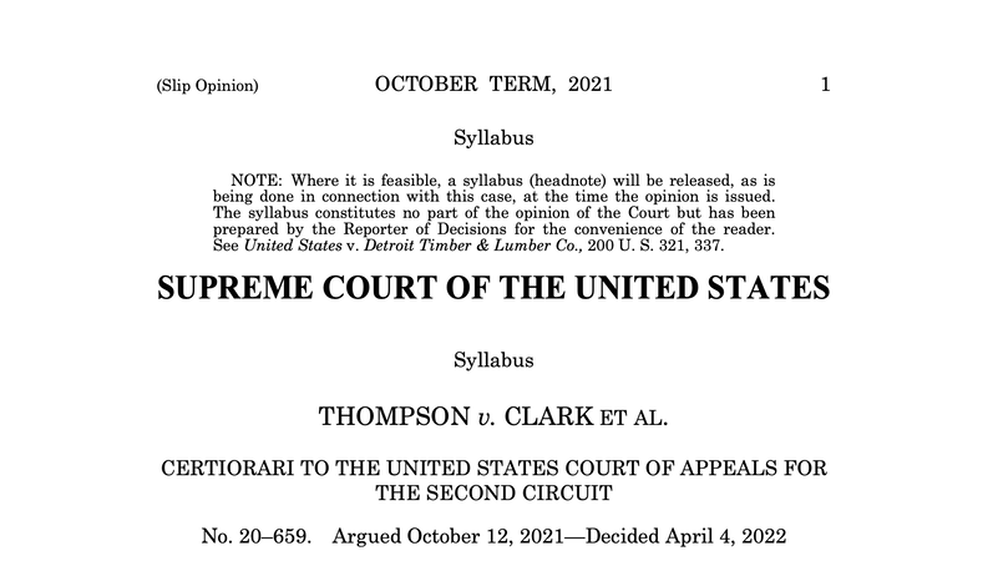|
Hard cases sometimes make for good clarifications of the law.
Someone who has suffered a violation of his or her constitutional rights in a conviction or imprisonment can sue the government when that case is determined in the plaintiff’s favor. But is it necessary to have a declaration of innocence for such a suit to move forward? Or is the simple fact that the plaintiff was not convicted enough to validate such a lawsuit? In the case of Thompson v. Clark, the Supreme Court reversed the U.S. Court of Appeals for the Second Circuit to find that a lack of prosecution is sufficient to give a plaintiff standing. The facts behind this case are extreme and disturbing. A Brooklyn man, Larry Thompson, opened his door to find four police officers who had received a 911 call that he was sexually abusing his infant daughter. The Court notes that the call apparently came from a relative suffering from mental illness. After refusing a warrantless search of his home, Thompson scuffled with police, was arrested and spent two days in police custody. Medical professionals examined the baby, determining there was no evidence of abuse. After his release, Thompson sued the police, alleging that he was a victim of malicious prosecution, subjecting him “to an unlawful, illegal and excessive detention.” The Supreme Court sided with the plaintiff, 6-3. Justice Brett Kavanaugh wrote the majority opinion, finding that a Fourth Amendment claim for malicious prosecution “does not require the plaintiff to show that the criminal prosecution ended with some affirmative indication of innocence. A plaintiff need only show that the criminal prosecution ended without a conviction.” Justice Samuel Alito, joined by Justice Clarence Thomas in a dissenting opinion, compared the Court’s ruling to the mythical chimera of ancient Greek literature, a mashup of a lion, a snake, and a goat. The majority opinion, Justice Alito wrote, stitches together elements taken from two very different claims: a Fourth Amendment unreasonable seizure claim and a common-law malicious-prosecution claim. But the majority saw a common thread in this case. It is easy to sympathize with the frantic actions of the police who falsely believed the safety of a baby was at stake. But as a precedent, this case will give Americans greater standing to protect their Fourth Amendment rights. Comments are closed.
|
Categories
All
|


 RSS Feed
RSS Feed